The Complexity of the Patent System Speakers: Difference between revisions
From Santa Fe Institute Events Wiki
No edit summary |
No edit summary |
||
| Line 35: | Line 35: | ||
''Department of Social and Decision Sciences, Carnegie Mellon University; External Faculty, Santa Fe Institute'' | ''Department of Social and Decision Sciences, Carnegie Mellon University; External Faculty, Santa Fe Institute'' | ||
[[File:Dedeo.jpg|left|200px]] | [[File:Dedeo.jpg|left|200px]] | ||
Simon DeDeo is an Assistant Professor at Carnegie Mellon University in the Department of Social and Decision Sciences, and External Professor at the Santa Fe Institute. He is also affiliated with the Cognitive Science program at Indiana University, where he runs the Laboratory for Social Minds. He and his collaborators study how people use words and signals, and the ideas they represent, to create a world. They have studied a diverse set of systems that includes the French Revolution, the courtrooms of Victorian London, the research strategies of Charles Darwin, the insurgency of modern-day Afghanistan, the emergent bureaucracy of Wikipedia, the creation of power hierarchies among the social animals, and the collusions and conspiracies of petrol stations in the American Midwest. They combine data from the contemporary world, archives from the deep past, statistical tools from cosmology, and models of human cognition from Bayesian reasoning and information theory to understand how cultures grow, flourish, innovate, and evolve. | |||
<div style="clear: both;"></div> | <div style="clear: both;"></div> | ||
Revision as of 21:44, 6 February 2018
March 12 – 14, 2018
Santa Fe Institute
David Krakauer
Santa Fe Institute, President and William H. Miller Professor of Complex Systems
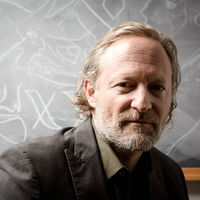
David’s research explores the evolution of intelligence on earth. This includes studying the evolution of genetic, neural, linguistic, social and cultural mechanisms supporting memory and information processing, and exploring their shared properties. He served as the founding Director of the Wisconsin Institute for Discovery, the Co-Director of the Center for Complexity and Collective Computation, and Professor of mathematical genetics all at the University of Wisconsin, Madison. David has been a visiting fellow at the Genomics Frontiers Institute at the University of Pennsylvania, a Sage Fellow at the Sage Center for the Study of the Mind at the University of Santa Barbara, a long-term Fellow of the Institute for Advanced Study in Princeton, and visiting Professor of Evolution at Princeton University. In 2012 Dr. Krakauer was included in the Wired Magazine Smart List as one of 50 people "who will change the World.” In 2016 Krakauer was included in Entrepreneur Magazine’s visionary Leaders advancing global research and business.
Deborah Strumsky
School of Sustainability and School for the Future of Innovation in Society, Arizona State University
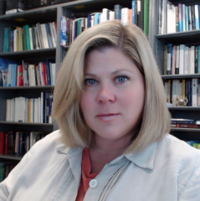
Deborah Strumsky is an assistant professor at Arizona State University (ASU) in Tempe, Arizona. Her research has focused on the study of innovation, invention and technological change, and their relationship to economic growth. Her more recent work has explored technological change in renewable energy systems. She has several longstanding collaborations with researchers at the Santa Fe Institute and a background in complex adaptive systems.
Simon Dedeo
Department of Social and Decision Sciences, Carnegie Mellon University; External Faculty, Santa Fe Institute
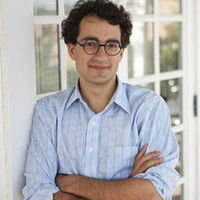
Simon DeDeo is an Assistant Professor at Carnegie Mellon University in the Department of Social and Decision Sciences, and External Professor at the Santa Fe Institute. He is also affiliated with the Cognitive Science program at Indiana University, where he runs the Laboratory for Social Minds. He and his collaborators study how people use words and signals, and the ideas they represent, to create a world. They have studied a diverse set of systems that includes the French Revolution, the courtrooms of Victorian London, the research strategies of Charles Darwin, the insurgency of modern-day Afghanistan, the emergent bureaucracy of Wikipedia, the creation of power hierarchies among the social animals, and the collusions and conspiracies of petrol stations in the American Midwest. They combine data from the contemporary world, archives from the deep past, statistical tools from cosmology, and models of human cognition from Bayesian reasoning and information theory to understand how cultures grow, flourish, innovate, and evolve.
Mirta Galesic
Professor and Cowan Chair in Human Social Dynamics at the Santa Fe Institute
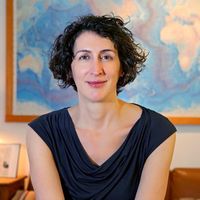
Social Learning, understanding, and coping with uncertainty.
Zorina Khan
Department of Economics, Bowdoin College
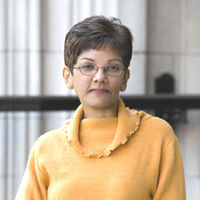
One of the foremost historians of the patenting system in the U.S.
Jan Youtie
School of Public Policy and Director of Policy Research Services and Principal Research Associate in Innovation Partners, a unit of the Enterprise Innovation Institute, Georgia Institute of Technology
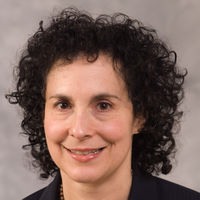
Jan was a leading member of a research team which developed a set of techniques and concepts, now standard in patent analysis, for detecting "emerging technologies" using patent data.
Alan Marco
School of Public Policy, Georgia Institute of Technology
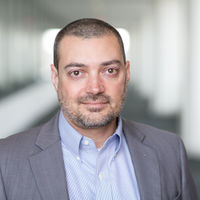
Alan was the second person to hold the position of Chief Economist of the U.S. Patent Office, a position he held until August of this year.
James Evans
Department of Sociology; Director, Knowledge Lab; Program in Computational Social Sciences, University of Chicago

Foremost expert on collective cognition and learning.
Hyejin Youn
Management & Organizations program, Kellogg School of Management, Northwestern University
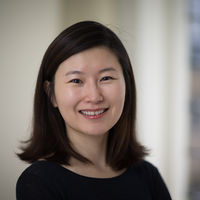
Expert on the combinatorics of invention, and computational social science.
Jose Lobo
School of Sustainability, ASU–Santa Fe Institute Center for Biosocial Complex Systems, Arizona State University
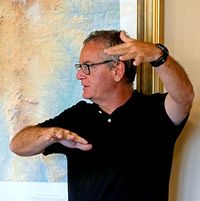
Colleen Chien
Santa Clara University School of Law
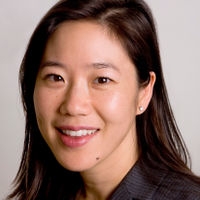
Bio forthcoming.
Brian Hinman
Former Chief IP Officer at Phillips, IBM, Verizon, and Interdigital
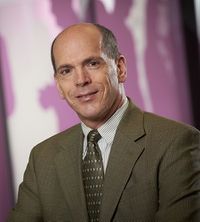
Bio forthcoming.

